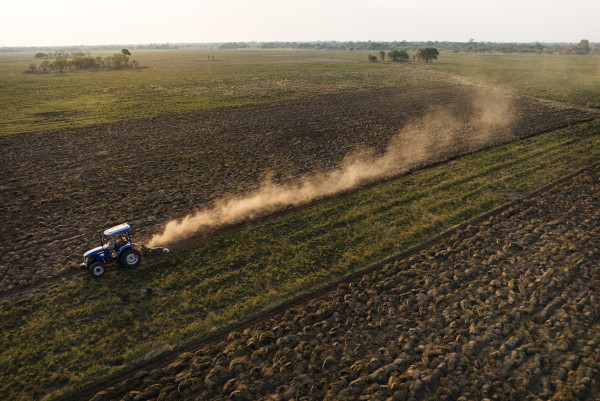Meeting in Abidjan on 13 December 2023, the Board of Directors of the African Development Bank Group (www.AfDB.org) approved a loan of $105.19 million to Angola to implement the Agriculture Sector Reform Programme. The programme is intended to strengthen agriculture policy and the business environment to improve food production and contribute to economic diversification.
“The Agriculture Sector Reform Programme aims to make smallholdings more productive and to integrate them into the general economy by improving the policy and regulatory framework to support the operation of agricultural input and product markets. It will enable the government to close the food deficit and reduce food imports,” said the African Development Bank’s Country Office Manager in Angola, Pietro Toigo.
Mr Toigo explained that the project would also deepen reforms, to “move towards more efficient agricultural markets while strengthening the governance and capacity of public agricultural institutions and encouraging the private sector to participate in agricultural markets to help increase Angolan grain and oilseed production.
The programme will support the establishment of an institutional framework to implement national agricultural mechanization and irrigation policies, the agricultural water management plan and the fertilizer law. The irrigation and mechanization policy will initially consist of developing roadmaps to implement a climate-smart policy and adopt cost-effective climate-smart technologies in agriculture and the food system. The project will also provide small farmers in four provinces (Lunda Norte, Lunda Sul, Moxico, and Cuando-Cubango) with appropriate machinery and climate-resilient equipment to facilitate routine manual operations and strengthen the adaptive capacity of agricultural systems.
The programme will also support the creation of rural markets and information service centres for farmers in the municipalities, including digital platforms to enable them to access a range of services related to production and to input markets. The Bank’s support will also help to put in place policy instruments to stabilize cereal production and marketing in times of over- and under-supply.
In the longer term, the programme will enable Angola to increase the number of smallholders – 50% of them women – with access to modern agricultural inputs through an information and communication technologies-based platform in order to increase the area under cultivation in the east of the country. It will also help to improve cereal productivity and strengthen agricultural development through the involvement of the private sector.
All the main stakeholders in the Angolan agriculture industry will benefit from this programme, including small and medium-sized enterprises. They will enjoy a better policy framework, improved agricultural investment opportunities and better market access. Ultimately, the programme will indirectly benefit all Angolans, because the funding will help expand the state’s fiscal space for essential development spending and job creation.
Distributed by APO Group on behalf of African Development Bank Group (AfDB).
Media contact:
Alexis Adélé
Communication and External Relations Department
[email protected]
About the African Development Bank Group:
The African Development Bank Group (AfDB) is Africa’s premier development finance institution. It comprises three distinct entities: the African Development Bank (AfDB), the African Development Fund (ADF) and the Nigeria Trust Fund (NTF). On the ground in 34 African countries with an external office in Japan, the AfDB contributes to the economic development and the social progress of its 54 regional member states. For more information: www.AfDB.org
